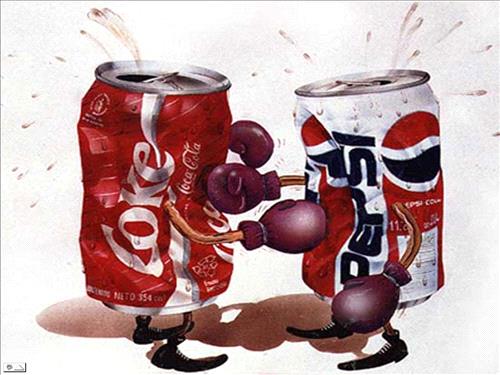Ammon News - (Bloomberg) - Publicis Groupe SA (PUB)’s merger with Omnicom Group Inc. (OMC) won’t just the world’s largest advertising company: it will mean longtime rivals such as Coca-Cola Co. (KO) and PepsiCo Inc. (PEP) are sharing the same firm.
The business will have $23 billion in sales and bring together a large stable of global clients, putting it in the position of crafting campaigns that criticize its own customers. While that situation is already increasingly common in the ad world, the deal is putting a spotlight on the potential conflicts of interest that come with a consolidated market.
Together, Publicis and Omnicom will command the largest media-buying budget among advertising companies, allowing the new company to purchase ad space across television, print and the Internet at more favorable rates. That scale can benefit clients, who will count on so-called Chinese walls within the organization to ensure that ad campaigns don’t share secrets.
“Most advertisers will probably live with this because on some level they believe in the Chinese walls,” said David Bank, an analyst with RBC Capital Markets in New York. “This merger is really about getting scale.”
Omnicom’s John Wren and Publicis’s Maurice Levy, who will serve as co-CEOs in the merged company, said this week that their major clients aren’t concerned about conflicts.
“I spoke to all our significant clients,” Wren said after the deal was announced on July 28. “There’s nothing significant to speak of. The ones I’ve spoken to simply congratulated us.”
Cola Battle
Coca-Cola and PepsiCo, the world’s largest beverage companies, would be two of the highest-profile competitors brought together by the deal. Pepsi stepped up its offensive on Coke in the 1970s and ’80s, when its Pepsi Challenge campaign offered consumers taste tests of both drinks. Coca-Cola’s major campaigns, meanwhile, have included “Coke is it!” and “Always Coca-Cola.”
Jeff Dahncke, a spokesman for Purchase, New York-based PepsiCo, declined to comment on the Publicis deal. Kent Landers, a spokesman for Atlanta-based Coca-Cola, didn’t respond to requests for comment.
Some clients may not want to use the same advertising company as their competitor, though they’re likely to be the exception, Bank said. The ad industry is under pressure to consolidate as it confronts the growing might of Silicon Valley companies like Google Inc. (GOOG) and Facebook Inc., which are pulling revenue away from traditional media.
Wireless Carriers
The telecommunications field may be another area of conflict. AT&T Inc., Verizon Wireless, Sprint Corp. and T-Mobile US Inc. the source of continual feuds within the advertising world will all fall under the new Publicis/Omnicom, according to Advertising Age.
Ad companies have traditionally handled client conflicts by creating agency networks that erect firewalls between competing campaigns. Omnicom and Publicis each have at least three such networks, which can include separate creative agencies and public-relations firms.
Omnicom’s empire includes BBDO Worldwide, TBWA Worldwide and DDB Worldwide Communications Group. Publicis owns Publicis Worldwide, Leo Burnett Worldwide and DigitasLBi.
When ad clients switch agencies, it’s typically because a new chief marketing officer wants to shake things up or already has a relationship with another firm, Bank said. It’s less common for a conflict to prompt the move, he said.
Ad spending across the globe may rise 5 percent next year to $543.9 billion, according to ZenithOptimedia, a research firm that’s part of Publicis. A combined Omnicom and Publicis would have spent a total of $3.34 billion in media placements on behalf of clients last year, data compiled by Advertising Age show. That would have accounted for 41 percent of total spending by the top 10 media agencies in the world. WPP Plc (WPP), by contrast, made up 32 percent at $2.6 billion.
So far, Publicis hasn’t lost a single major advertiser as a result of the proposed merger, Publicis’s Levy said.
“I’m sure there are some competitors who’d very much like to see us losing some accounts,” he said. “I don’t believe this is something that will be significant”
